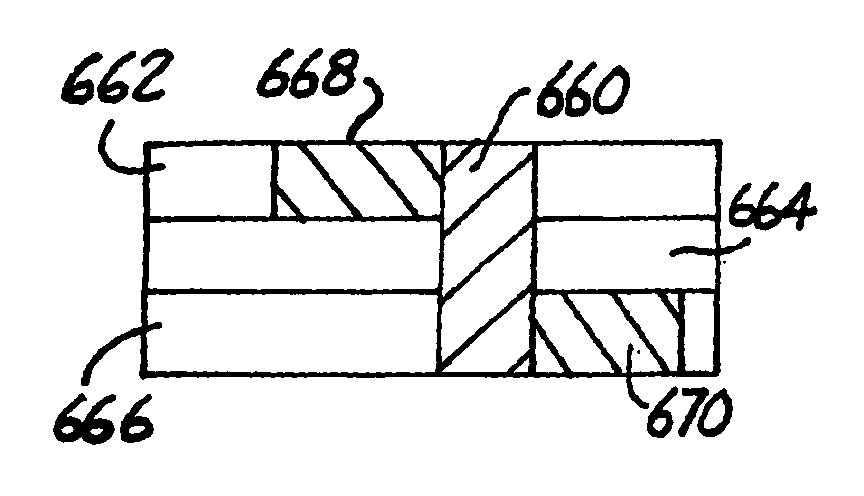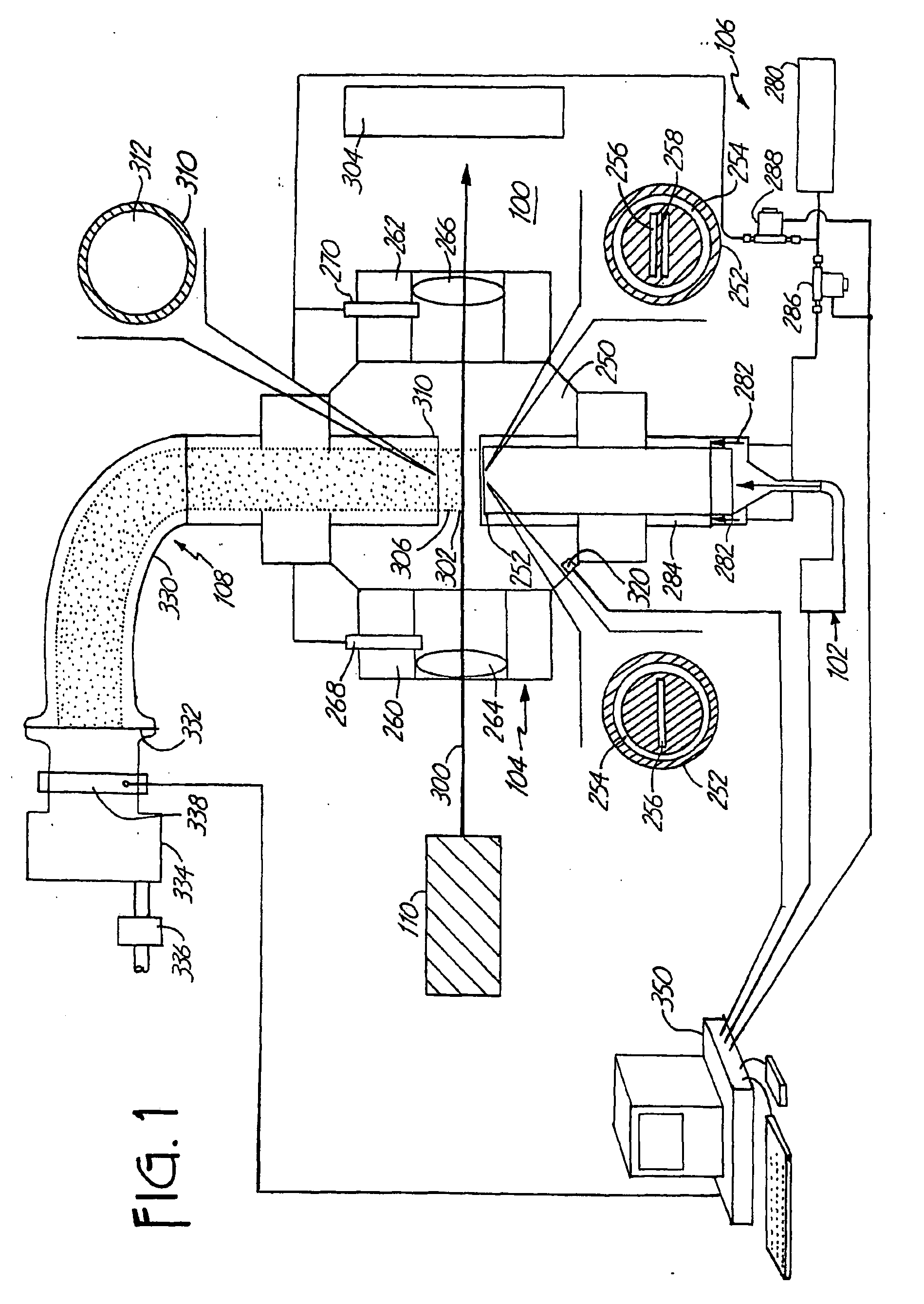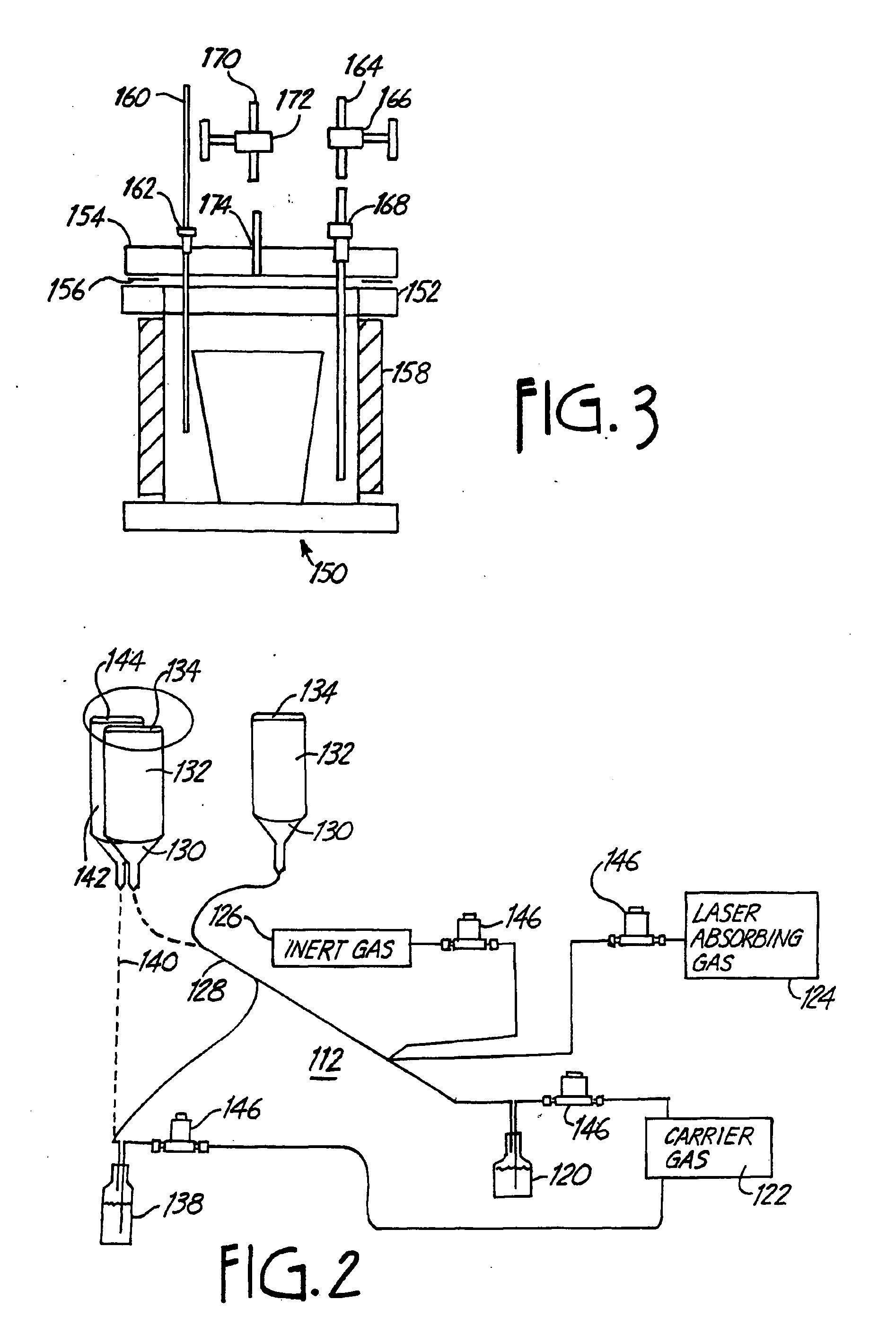Self-assembled structures
a self-assembling and structure technology, applied in the direction of thin material processing, material nanotechnology, coatings, etc., can solve the problems of general limitations in self-assembly approaches
- Summary
- Abstract
- Description
- Claims
- Application Information
AI Technical Summary
Benefits of technology
Problems solved by technology
Method used
Image
Examples
Embodiment Construction
[0024] Extremely small and well defined structures, for example of inorganic particles, can be formed in association with a surface using self-assembly approaches. Nanoparticles with very uniform sizes are preferred components for forming self-assembled structures, although other functional compositions can be used. The nanoparticles are organized into a well defined structures using fabrication techniques that take advantage of molecular recognition characteristics of self-assembly approaches. Molecular recognition can involve various interactions, such as commingling, key-lock relationships and guest-host interactions.
[0025] The deposition techniques are combined with localization techniques that constrain the resulting structures within isolated islands along the substrate surface. The islands can be ordered or disordered arrays. The organized structures or islands are suitable for the production of microelectronics and the like, which incorporate well defined miniature componen...
PUM
| Property | Measurement | Unit |
|---|---|---|
| average primary particle diameter | aaaaa | aaaaa |
| diameter | aaaaa | aaaaa |
| diameter | aaaaa | aaaaa |
Abstract
Description
Claims
Application Information
 Login to View More
Login to View More - R&D
- Intellectual Property
- Life Sciences
- Materials
- Tech Scout
- Unparalleled Data Quality
- Higher Quality Content
- 60% Fewer Hallucinations
Browse by: Latest US Patents, China's latest patents, Technical Efficacy Thesaurus, Application Domain, Technology Topic, Popular Technical Reports.
© 2025 PatSnap. All rights reserved.Legal|Privacy policy|Modern Slavery Act Transparency Statement|Sitemap|About US| Contact US: help@patsnap.com



